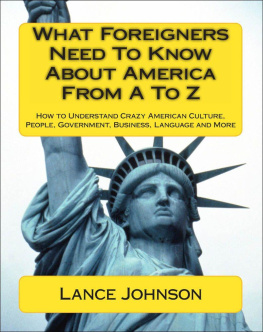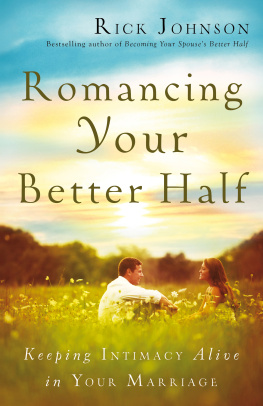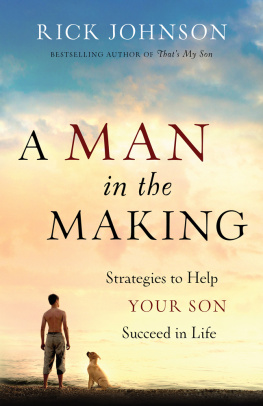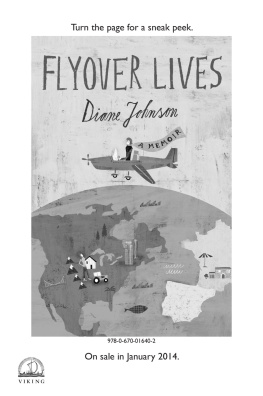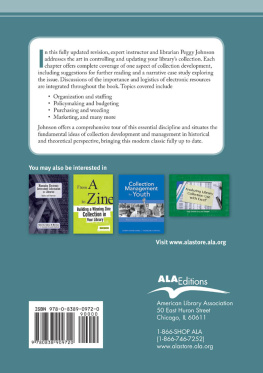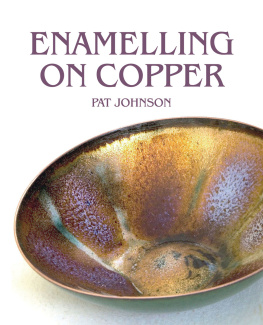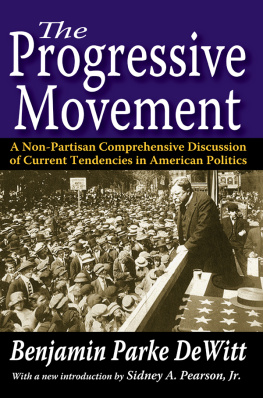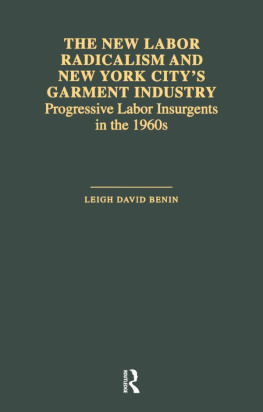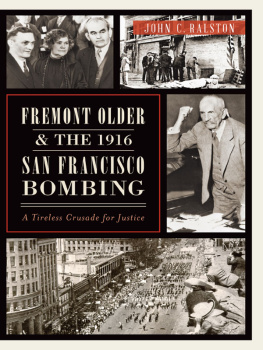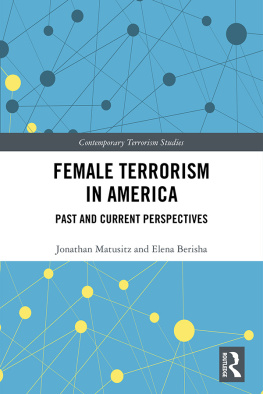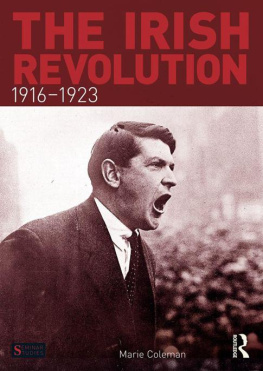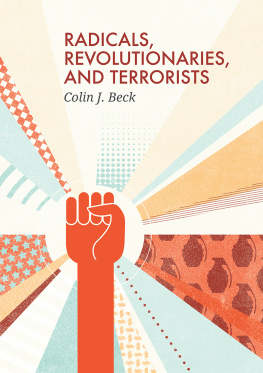Contents
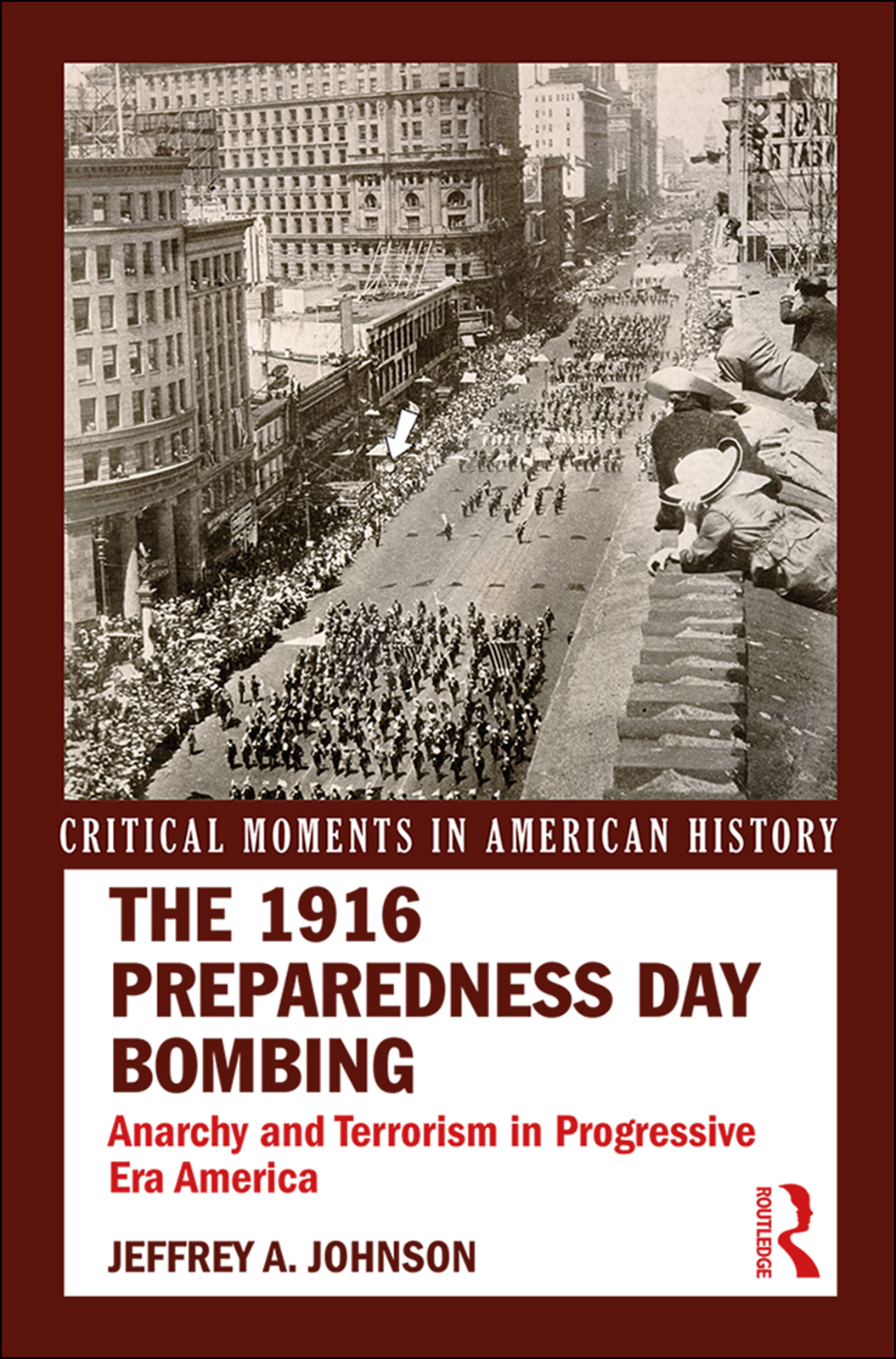
The 1916 Preparedness Day Bombing
This book places the 1916 San Francisco Preparedness Day Bombing within the broader context of American radicalism and isolationism during the Progressive Era. A concise narrative and key primary documents offer readers an introduction to this episode of domestic violence and the subsequent, sensationalized trial that followed. The dubious conviction of a local labor organizer raised serious questions about political extremism, pluralistic ideals, and liberty in the United States that continue to resonate in the twenty-first century.
Jeffrey A. Johnson is Professor of History and Director of the American Studies Program at Providence College in Rhode Island, USA.
Critical Moments in American History
Edited by William Thomas Allison, Georgia Southern University, USA
A full list of titles in this series is available at: www.routledge.com/Critical-Moments-in-American-History/book-series/CRITMO
The Emergence of Rock and Roll
Music and the Rise of American Youth Culture
Mitchell K. Hall
Transforming Civil War Prisons
Lincoln, Lieber, and the Politics of Captivity
Paul J. Springer and Glenn Robins
The Battle of Fort Sumter
The First Shots of the American Civil War
Wesley Moody
The WPA
Creating Jobs and Hope in the Great Depression
Sandra Opdycke
The California Gold Rush
The Stampede that Changed the World
Mark Eifler
Bleeding Kansas
Slavery, Sectionalism, and Civil War on the Missouri-Kansas Border
Michael E. Woods
The Marshall Plan
A New Deal for Europe
Michael Holm
The Espionage and Sedition Acts
World War I and the Image of Civil Liberties
Mitchell Newton-Matza
McCarthyism
The Realities, Delusions and Politics Behind the 1950s Red Scare
Jonathan Michaels
Three Mile Island
The Meltdown Crisis and Nuclear Power in American Culture
Grace Halden
The 1916 Preparedness Day Bombing
Anarchy and Terrorism in Progressive Era America
Jeffrey A. Johnson
The 1916 Preparedness Day Bombing
Anarchy and Terrorism in Progressive Era America
Jeffrey A. Johnson

First published 2018
by Routledge
711 Third Avenue, New York, NY 10017
and by Routledge
2 Park Square, Milton Park, Abingdon, Oxon OX14 4RN
Routledge is an imprint of the Taylor & Francis Group, an informa business
2018 Taylor & Francis
The right of Jeffrey A. Johnson to be identified as author of this work has been asserted by him in accordance with sections 77 and 78 of the Copyright, Designs and Patents Act 1988.
All rights reserved. No part of this book may be reprinted or reproduced or utilised in any form or by any electronic, mechanical, or other means, now known or hereafter invented, including photocopying and recording, or in any information storage or retrieval system, without permission in writing from the publishers.
Trademark notice: Product or corporate names may be trademarks or registered trademarks, and are used only for identification and explanation without intent to infringe.
Library of Congress Cataloging in Publication Data
Names: Johnson, Jeffrey A., 1976- author.
Title: The 1916 preparedness day bombing: anarchy and terrorism in progressive era America / by Jeffrey A. Johnson.
Description: 1 Edition. | New York: Routledge, [2017] |
Series: Critical moments in American history | Includes bibliographical references and index.
Subjects: LCSH: BombingsCaliforniaSan FranciscoHistory20th century. | World War, 19141918Protest movementsCaliforniaSan Francisco. | TerrorismCaliforniaSan FranciscoHistory20th century. | Trials (Murder)CaliforniaSan FranciscoHistory20th century. | Progressivism (United States politics)History20th century.
Classification: LCC HV6432.44.S36 (ebook) | LCC HV6432.44.S36 J64 2017 (print) | DDC 363.32509794/6109041dc23
LC record available at https://lccn.loc.gov/2017008672
ISBN: 978-1-138-67282-6
ISBN: 978-1-138-67283-3
ISBN: 978-1-315-56232-2
Typeset in Bembo
by codeMantra
Visit the companion website: http://www.routledgetextbooks.com/textbooks/_author/criticalmoments-9781138672833/
For Dena
Welcome to the Routledge Critical Moments in American History series. The purpose of this new series is to give students a window into the historians craft through concise, readable books by leading scholars, who bring together the best scholarship and engaging primary sources to explore a critical moment in the American past. In discovering the principal points of the story in these books, gaining a sense of historiography, following a fresh trail of primary documents, and exploring suggested readings, students can then set out on their own journey, to debate the ideas presented, interpret primary sources, and reach their own conclusionsjust like the historian.
A critical moment in history can be a range of thingsa pivotal year, the pinnacle of a movement or trendor important events such as the passage of a piece of legislation, an election, a court decision, or a battle. It can be social, cultural, political, or economic. It can be heroic or tragic. Whatever they are, such moments are, by definition, game changers, momentous changes in the pattern of the American fabric and paradigm shifts in the American experience. Many of the critical moments explored in this series are familiar; some are less so.
There is no ultimate list of critical moments in American historyany group of students, historians, or other scholars may come up with a different catalog of topics. These differences of view, however, are what make history itself and the study of history so important and so fascinating. Therein can be found the utility of historical inquiryto explore, to challenge, to understand, and to realize the legacy of the past through its influence of the present. It is the hope of this series to help students realize this intrinsic value of our past and of studying our past.
William Thomas Allison
Georgia Southern University, USA
Research and writing can be a lonely pursuit, but many colleagues, family members, and friends were instrumental in this happening. My only fear here is mistakenly forgetting anyone who was helpful along the way.
In early 2015, I was invited to share early and brief parts of this work at the Newberry Librarys Seminar in labor history. The chair of the session Liesl Orenic, the attendees, and certainly the two commentators, Peter Cole and Kevin Boyle, all offered friendly and useful observations. That feedback and conversation were simply invaluable to the way I thought about the project.
I had the great fortune of being able, in part due to financial support, to visit a number of archives to explore this story. Thanks to the gracious support of a James and Sylvia Thayer Fellowship at UCLA, I worked closely with materials at the Charles Young Research Library. The collections and the staff there as well as at the University of Californias Bancroft Library, the International Institute of Social History in Amsterdam, and the Labadie Collection at the University of Michigan all provided critical materials.


